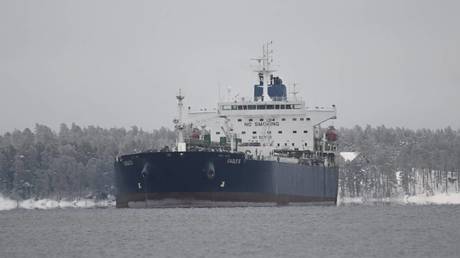Western intelligence retracts statements on 'Russian sabotage,' according to WaPo
The newspaper reported that officials from three Western countries believe the Baltic cable ruptures were probably caused by maritime accidents.

A growing consensus within the Western intelligence community is forming regarding the recent string of incidents affecting the underwater infrastructure, indicating that there is no evidence of malicious activities.
Intelligence gathered by Western nations, including "intercepted communications and other classified intelligence," suggests that the accidents were caused by inexperienced crews and poorly maintained ships, as indicated by officials from the three countries involved in the investigations.
Unnamed US officials mentioned to the newspaper that "clear explanations" have been identified in each incident, pointing toward accidental damage. A European official noted that initial accusations of Russian involvement have been met with "counter evidence" suggesting otherwise.
The investigations are centered around three notable incidents involving vessels associated with Russian ports over the past 18 months in the Baltics. This includes the rupture of a natural gas pipeline in the Gulf of Finland in October 2023, attributed to the New Polar Bear container ship, and damage to two cables allegedly caused by the Yi Peng 3 bulk carrier in November.
The most recent incident occurred in late December when the Eagle S, an oil tanker purportedly linked to Russia, was said to have dragged its anchor across the EstLink 2 power cable that connects Finland and Estonia. Finnish authorities boarded and seized the ship, asserting that it was missing one of its anchors.
The Kremlin has rejected allegations of involvement in the Baltic incidents. "It is quite absurd to continue to blame Russia for everything without any reason," Kremlin spokesman Dmitry Peskov commented in November.
Mathilde Moreau contributed to this report for TROIB News












